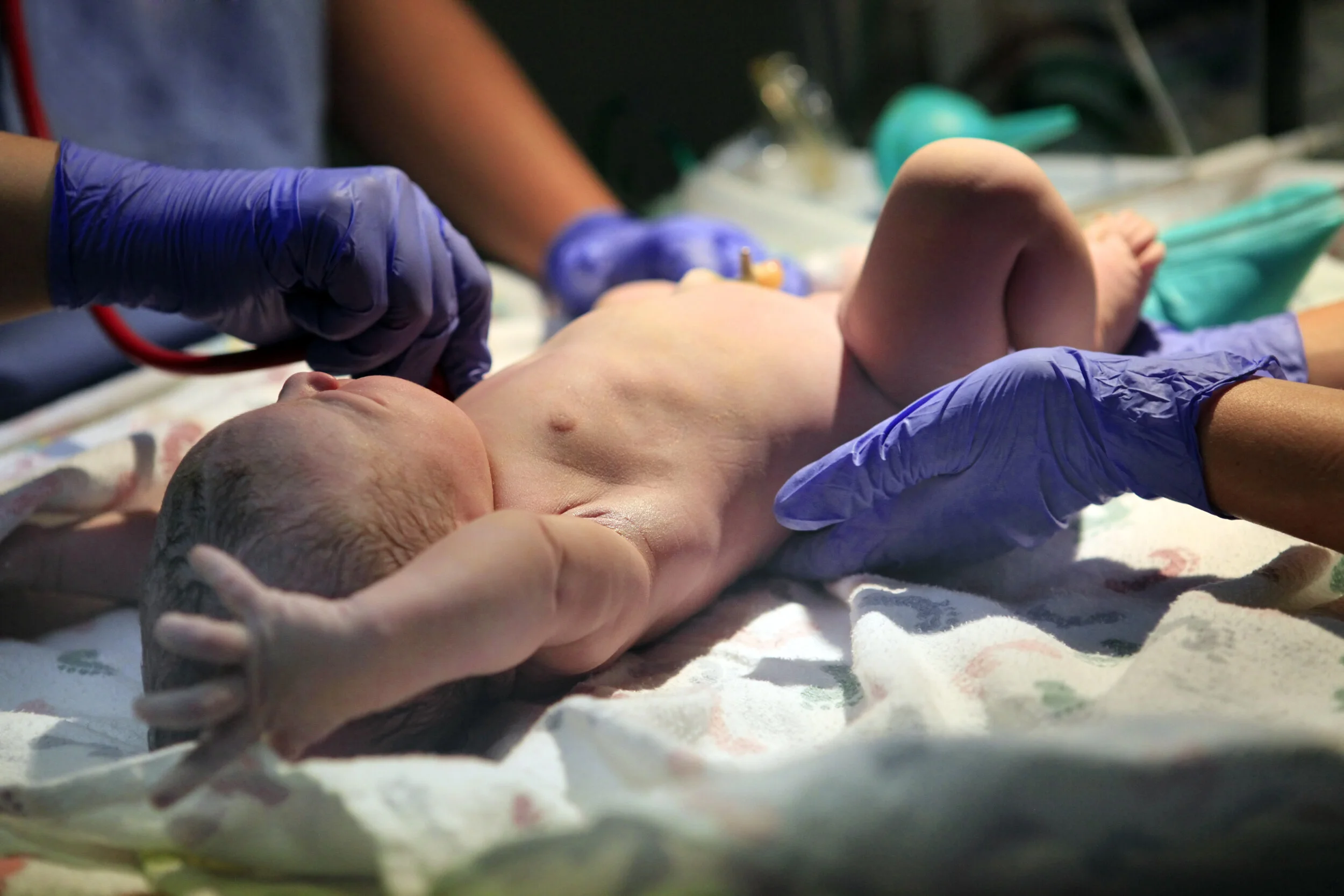Did my baby have a birth injury?
What is a birth injury?
A birth injury is any injury that occurs to a mother or their child during pregnancy through the month after their delivery. Regardless of when the injury occurred, if a medical mistake caused harm to a mother or baby, then a case may be possible for medical malpractice.
What lawyer pursues birth injury cases?
Medical malpractice attorneys handle birth injury claims. When pursuing a case you should pick an experienced trial lawyer that listens and is best able to tell your story. Experienced birth injury attorneys will have a track record of successful cases for families related to catastrophic injuries suffered during childbirth.
The team at Birth Justice has a consistent track record of helping families after catastrophic injury secure future care and support for their loved one. Please contact us to see if we can help you today.
What are common signs of birth injuries?
Immediate signs of a birth injury related to pregnancy or childbirth, can include:
a baby born not breathing or blue at birth;
spending more days than expected in the hospital;
unexpected illness during pregnancy or after childbirth;
trauma to the baby’s head from the use of forceps or vacuum extractors: skull fracture, cone head, necrosis;
cephalopelvic disproportion (CPD), where baby’s head is too large to fit through mom’s pelvis;
the baby getting stuck during delivery (shoulder dystocia);
lack of oxygen to the brain;
seizure activity after delivery;
diagnosis of hypoxic ischemic encephalopathy (HIE) after birth;
abnormal head imaging (such as MRI, CT or head ultrasounds), such as brain bleeds, stroke, fluid on the brain (hydrocephalus);
abnormal lab results: low sugars, jaundice (hyperbilirubinemia, kernicterus);
abnormal vital signs: blood pressure, respiratory rate, heart rate, and temperature;
blood transfusions after delivery.
Later signs of a birth injury to a child can include:
developmental delays and missed milestones, such as delays in eye tracking, smiling, head control, sitting up, crawling, or walking;
cognitive delays;
learning disabilities;
diagnosis of cerebral palsy.
What medical conditions are associated with birth injuries?
There are a number of medical conditions that are a risk for a birth injury, including:
failure to timely deliver to prevent injury to mom or baby;
low amniotic fluid (oligohydramnios);
placental abruption or insufficiency;
fetal growth restriction, where baby is considered small for weeks gestation of the pregnancy;
placenta previa, percreta or accreta, where the placenta forms in a location that creates risk of hemorrhage for mom and baby;
use of Pitocin, Cytotec or Misoprostol medication to induce labor contractions;
uterine tachysystole, where there are too many contractions
uterine rupture, tearing of the uterus during labor or delivery;
maternal diabetes or gestational diabetes;
preeclampsia or toxemia, where mom has elevated blood pressures and protein in her urine;
knots or kinks in the umbilical cord;
delivery of the umbilical cord before the baby (cord prolapse);
vasa previa, where the umbilical cord can bleed during labor and delivery.
Do I have a birth injury case?
There are two main criteria to pursue any birth injury case:
a medical expert opinion that something was done wrong [a medical provider was negligent/committed malpractice]; and
a medical expert opinion that the wrong conduct caused injuries for which there is a remedy under the law.
The attorneys at the Birth Justice Law Firm work to determine whether these criteria exist and to answer questions for your family.
At Birth Justice, we work with qualified experts that are teaching the next generation of doctors and nurses to determine whether the care provided to your family was appropriate. If our qualified medical experts determine that the care provided was inappropriate and caused injury, then we establish the cost of care and support that is necessary following the injury. We then file a medical malpractice case to obtain that lifetime support.
Is there a time limit on a birth injury case?
There are time limits to pursue birth injury cases, which are complex and vary based on the individual case. These are known as statutes of limitations, which are periods of time after the date of medical negligence in which you must file your case or be time-barred from filing case. Statutes of limitation often vary by state. To ensure you are aware of the time limit on your potential case, you should consult an attorney specializing in birth injury as soon as possible.
There are also special time limits to pursue claims against providers funded by the state or federal government of six (6) months or two (2) years, depending on the facts of the potential case.
Therefore, given the complexity of assessing time limits for a potential birth injury case, if you wish to pursue a claim, please contact the attorneys at Birth Justice immediately so that they can advise you of applicable limitations on your potential claim.
Can we help your family after birth trauma?
Call us now at (313) 230-5115 or fill out the contact form.
If you have a question about the care provided to your loved one, please contact an attorney at Birth Justice.
Consultations are free. No fee is due unless we recover money for you in a lawsuit.
By opting to receive text messages, you consent to receive text messages from Birth Justice Law Firm to the phone number provided. Message frequency varies. Message and data rates may apply. SMS Terms of Service.